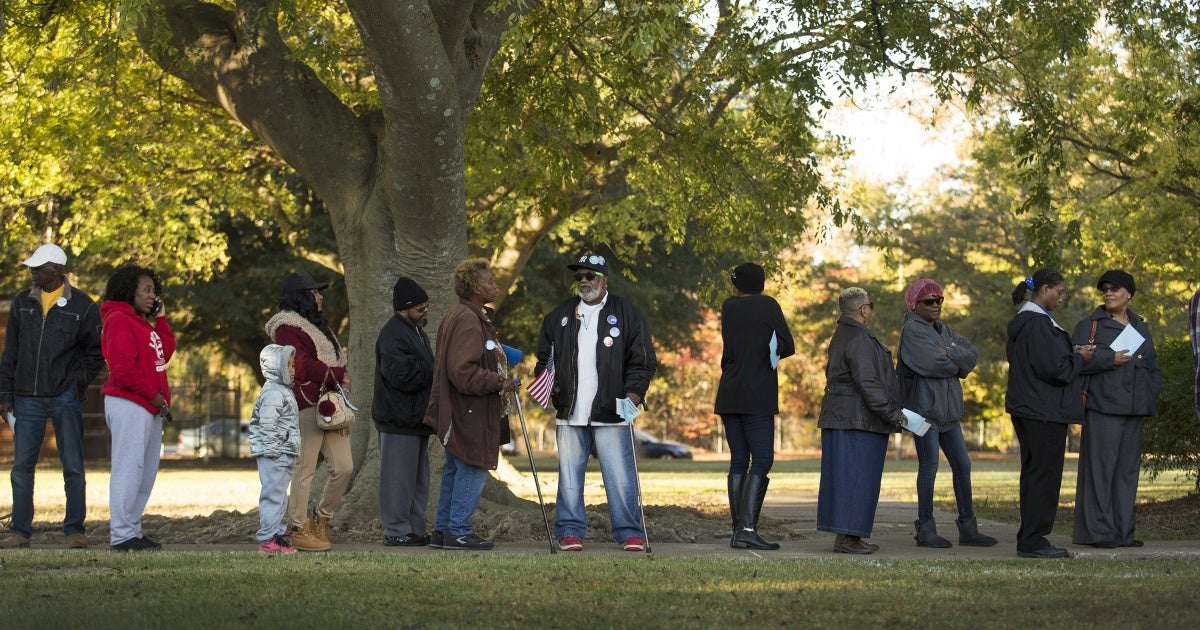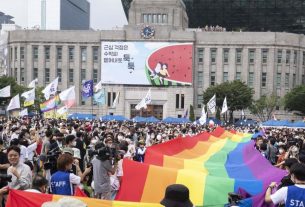(Washington, DC, June 27, 2024) – The United States is out of step with the rest of the world in disenfranchising large numbers of citizens based on criminal convictions, the Sentencing Project, Human Rights Watch, and the American Civil Liberties Union said in a report released today. In this US election year, and going forward, US states should reform their laws to ensure nobody is denied the right to vote due to a criminal conviction.
The 55-page report, “Out of Step: US Policy on Voting Rights in Global Perspective,” examines the laws of 136 countries around the world with populations of 1.5 million and above and finds that the majority—73 of the 136—never, or rarely, deny a person’s right to vote because of a criminal conviction. In the other 63 countries, the United States sits at the restrictive end of the spectrum, disenfranchising a broader swath of people overall.
“Wide access to voting is a cornerstone of rights-respecting, democratic government, which is why the right to vote is protected in international human rights law and why the US should reform its outlier status on voting rights,” said Alison Leal Parker, deputy US director at Human Rights Watch. “The right to vote, and the legitimacy of the democratic system in the United States, should not depend on its criminal legal system, which is built upon and perpetuates discrimination.”
Felony disenfranchisement laws in the United States date back to the end of the Civil War. After formerly enslaved Black men gained the right to vote through the 14th Amendment to the Constitution, state lawmakers began expanding the list of crimes defined as felonies to target Black people. At the same time, states began revoking voting rights for any felony conviction. Although the federal government officially barred some of these policies, known as “Jim Crow laws,” in the Voting Rights Act of 1965, felony disenfranchisement laws remain in 48 US states.
As of 2022, over 4.4 million people in the United States were disenfranchised due to a felony conviction, and thousands more eligible voters were unable to cast their ballot because they were in prison. One in 19 Black Americans of voting age is disenfranchised, 3.5 times as many as non-Black Americans. A conservative estimate is that half-a-million Latinx Americans are disenfranchised under these policies, and in some states, like Florida, children with felony convictions can lose the right permanently even before they are old enough to vote.
The organizations found that in recent years some US jurisdictions have taken steps to re-enfranchise people who lost their voting rights due to a criminal conviction. Most US states no longer disenfranchise people for life, and many no longer disenfranchise people who have been released.
“In recent years, we’ve seen many US jurisdictions and other countries begin to re-enfranchise people with prior criminal legal system involvement. This progress is promising, but there’s still much work to be done,” said Nicole D. Porter, senior director of advocacy for The Sentencing Project. “In this report, we recommend that the United States end felony disenfranchisement and extend voting rights to all otherwise voting-eligible persons, regardless of their history with the criminal legal system. We also recommend that localities establish polling centers or otherwise effectively facilitate voting in all correctional facilities—something we’ve seen in Cook County (Chicago, Illinois), Harris County (Houston, Texas), and the District of Columbia.”
Despite advances in legal eligibility to vote, substantial practical obstacles remain to voting access for people in the United States returning to society after incarceration.
“Even as we’ve seen more US states make progress in expanding rights restoration, there remain substantial challenges to voter access,” said Jonathan Topaz, a staff attorney with the ACLU’s Voting Rights Project. “For example, convoluted rights restoration laws have resulted in voter confusion about eligibility among returning citizens. Additionally, in many states, returning citizens become eligible to vote only upon payment of various legal financial obligations such as fees, costs, fines, and/or restitution, which essentially institutes a pay-to-vote system. These obstacles must be abolished to ensure full civic participation.”
Outside the United States, the trend is toward greater enfranchisement of people with prior criminal system involvement. For example, in 2014, Egypt repealed a sweeping law that had banned voting, without time limits, for anyone convicted of an offense. In 2020, the Ugandan High Court affirmed the constitutional right of all citizens ages 18 and above, including incarcerated people, to vote.
In 2022, Tanzania’s High Court found a law that disenfranchised people sentenced to more than six months in prison to be unconstitutional, because it was too general and inconsistent with the country’s constitution. That same year, the Chilean government eliminated certain obstacles to voting for detained people, allowing them to vote in 2022 and 2023 in constitutional referendums. Also in 2022, the Supreme Court of Nepal required allowing incarcerated people, both those in pretrial detention and those serving sentences, to vote in elections to the federal parliament and provincial assemblies.
João Luis Silva, 41, who had been incarcerated in Brazil, told researchers that regaining the ability to vote helped facilitate his successful return to society: “Not being able to vote pushes you to the margins of society,” he said. “When you recover that [right to vote], it is as if you are coming back to society.”



